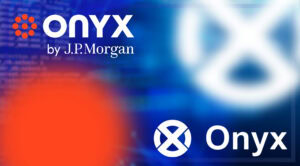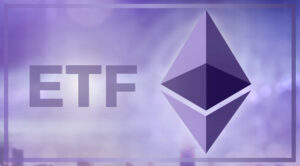Madrid, 27 July 2023
The Monitoring Group (MG) is responsible for the overall governance of the international audit, assurance, ethics and independence standard-setting system, including conducting periodic effectiveness reviews. In July 2020, the MG issued its recommendations Strengthening the International Audit and Ethics Standard-Setting System (MG Recommendations). The objectives of the MG Recommendations are the implementation of an independent and inclusive multi-stakeholder standard-setting system that is responsive to the public interest in the development of timely, high-quality audit, assurance, ethics, and independence standards that respond to an accelerated pace of change. The MG, supported by strong stakeholder engagement, has made significant progress in implementing its Recommendations to strengthen the standard-setting system.
High quality international audit, assurance, ethics, and independence standards enhance the quality and reliability of information investors use to make capital allocation decisions. Stakeholders across the global financial reporting ecosystem benefit from high-quality standard setting by the International Auditing and Assurance Standards Board (IAASB) and the International Ethics Standards Board for Accountants (IESBA) (collectively the SSBs) under the oversight provided by the Public Interest Oversight Board (PIOB) to ensure due process is followed and that the standards being developed are responsive to the public interest, are developed in accordance with the Public Interest Framework (PIF),1 and are responsive to the rapid pace of change. An independent standard-setting system that provides for input from all stakeholders, leverages appropriate expertise, and that is safeguarded from undue influence is critical to maintaining and improving trust in the quality of financial and non-financial reporting.
One of the objectives of the MG Recommendations is to “foster the development of timely, high-quality standards that respond to an accelerated pace of change.” This objective is critical as it relates to the evolving space of sustainability reporting. Strong momentum continues around the globe regarding voluntary and mandatory reporting of sustainability information and assurance over that information. Investors want high-quality and reliable sustainability information on which to base capital allocation decisions. Independent assurance providers with strong ethical behavior form the cornerstones of high-quality sustainability assurance engagements and serve an important gatekeeping function to help protect investors and enhance investor confidence. Likewise, the SSBs continue to respond to the need for improvements in audit, ethics and independence standards over financial information, such as those related to going concern and fraud, to fulfill their responsibilities to the public interest.
Strengthening the Independence of the Standard-Setting System
In June 2021, the MG reported on the development of its transition plan2 and in December 2022, the MG reported on its progress to implement the MG Recommendations,3 including the steps taken to provide for greater independence of the standard-setting system through the PIOB’s independent oversight and governance role and engagement with the SSBs throughout the standard-setting life cycle with oversight of the system provided by the MG. Since then, the MG, the PIOB, the SSBs, and the International Federation of Accountants (IFAC) have worked collaboratively to make further progress to strengthen the standard-setting system across six broad implementation work streams,4 while minimizing the disruption to the SSBs as they execute on their strategic priorities and work plans.
One important implementation step was the establishment of the International Foundation for Ethics and Audit (IFEA).5 IFEA houses the SSBs in a separate legal entity outside of and independent from IFAC. The creation of IFEA marks a significant milestone in implementing the MG Recommendations and strengthens the independence of the standard-setting system. Importantly, however, this step would not have been possible without significant financial support from IFAC and the audit firm networks that comprise the Global Public Policy Committee (GPPC).6 While these financial commitments are greatly appreciated by the MG, as discussed below, more is needed to implement a sustainable funding model for the standard-setting structure.
The establishment of IFEA, together with the previously reported steps taken to implement the MG Recommendations, have significantly improved the independence of the international audit, assurance, ethics and independence standard-setting system by providing safeguards against undue influence by any one stakeholder group while still encouraging participation from all stakeholders in the standard-setting process. These safeguards include, but are not limited to:
- the establishment of the MG Nominating Committee7 and the PIOB’s SSB Nominations Committee (SSB NomCo)8 which provide greater independent responsibility over the process of appointing members to the PIOB and the SSBs;
- a multi-stakeholder composition of the PIOB and greater diversity of SSB members in terms of geography, gender and professional/experiential backgrounds;
- the use of skills matrices, conflicts of interest policies, and operating procedures for SSB and PIOB members;
- making the PIF an integral part of the standard-setting process; and
- the formation of a separate legal entity, which houses the SSBs, that is independent from the other stakeholder groups.
Next steps to implement the MG Recommendations
The PIOB recently appointed the inaugural Chair of the Stakeholder Advisory Council (SAC),9 and launched a call10 for members of this newly created body which will provide strategic advice to the IAASB and the IESBA. The SAC, which is due to commence its role in early 2024, is another important step in the implementation of the MG Recommendations. The SAC will provide valuable strategic advice from a multi-stakeholder perspective to the SSBs on their strategies and work plan priorities and contribute to the identification of emerging developments and public interest issues as the SSBs continue to develop high-quality standards globally.
Progress has also been made to expand and enhance the technical staff of the SSBs, with the capability to take forward the development of relevant, timely, high-quality standards. Increasing the size and technical abilities of the staff, including through in-kind contributions, ensures technical expertise is available to the SSBs, which will allow the SSB members to take on a more strategic role and further support the multi-stakeholder board composition with a small reduction in the SSBs’ size as envisaged in the MG Recommendations.
Securing sustainable, long-term funding
Key to maintaining the progress made towards an independent and inclusive multi-stakeholder standard-setting system is securing a sustainable, long-term funding mechanism. As noted above, the MG is grateful to the GPPC and the accountancy profession for its financial contributions to support the launch of IFEA and for the initial costs of expanding the SSBs’ technical staff. This initial funding commitment is critical to SSBs’ efforts to execute their work plans, especially as it relates to the SSBs’ important projects on sustainability and other high-priority public interest topics such as auditor responsibility with respect to fraud and going concern. The MG, the PIOB, and the SSBs continue to work to secure a sustainable, diversified, long-term funding model for the standard-setting system, holistically. It is in the public interest that all stakeholders in the reporting ecosystem who benefit from a single set of high-quality international standards contribute to support the long-term financial stability of the standard-setting system.11 This, of course, is especially true as the SSBs work to develop high quality, profession-agnostic, sustainability-related assurance, ethics and independence standards in addition to continuing to improve auditing, ethics and independence standards over financial information.
The MG remains committed to transparent reporting to all stakeholders as the MG Recommendations are implemented and will issue further communications as other implementation activities occur.
Paul Munter, Chair of the MG stated: “I am very pleased with the significant progress made to implement the MG Recommendations. These enhancements to the standard-setting system have enabled the agility of the SSBs to be responsive to the pace of change and public interest related to the topic of sustainability as well as important work on auditor responsibilities with respect to fraud and going concern. I would like to express my gratitude to all the key stakeholders who have worked collaboratively and diligently to implement the MG Recommendations to date.”
Who we are
The Monitoring Group (MG) is a group of international financial institutions and regulatory bodies committed to advancing the public interest in areas related to international audit- and assurance-related standard-setting and audit quality. This publication is part of its ongoing global effort to promote high-quality international audit, assurance, ethics and independence standards. Further information can be obtained from the IOSCO website at https://www.iosco.org/about/?subsection=monitoring_group
- See Section D for the Public Interest Framework
- Monitoring Group Reports on Progress to Implement Recommendations to Strengthen the International Audit and Ethics Standard-Setting System, June 2021
- Monitoring Group Reports on Progress to Implement Recommendations to Strengthen the International Audit and Ethics Standard-Setting System, December 2022
- The six work streams include: Nominations and Transition of the Boards, Legal Structure, Staffing Needs and Costs, Funding, Skills Matrices and Conflict of Interest Policies, and Operating Procedures.
- Monitoring Group Welcomes Important Step in Implementing its Recommendations with the Establishment of the International Foundation for Ethics and Audit, March 2023
- The Global Public Policy Committee (GPPC) brings together senior partners from the six large international accounting networks (BDO, Deloitte, EY, Grant Thornton, KPMG and PwC). The GPPC is focused on professional matters of global scope deemed to be priorities by their respective networks’ CEOs, such as the enhancement of quality in auditing and corporate reporting. The GPPC’s primary objectives are to participate constructively in matters concerning global public policy to advance the public interest and to enhance public confidence in the profession.
- Establishment of the Monitoring Group Nominating Committee and Publication of the Open call for Applications to the Public Interest Oversight Board
- Monitoring Group Reports on the Establishment of the Public Interest Oversight Board’s Standard-Setting Boards Nominating Committee
- Alan Johnson appointed inaugural Chair of the new IESBA and IAASB Stakeholder Advisory Council
- Invitation for Application – Stakeholder Advisory Council
- The Value of High Quality Audits and the Importance of Funding an Independent Multi-stakeholder International Standard-setting Structure












